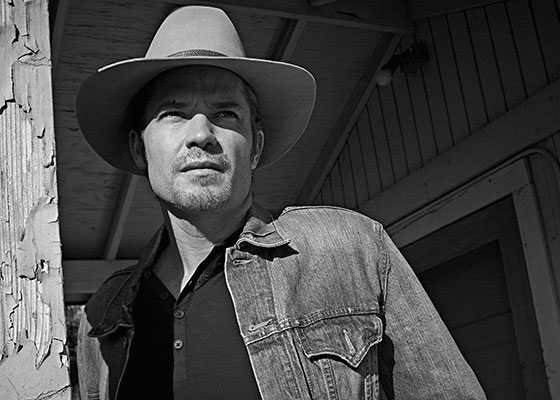Today is FX’s turn at the Television Critics Association Summer Press Tour. This fall, the network has two new comedies, but network CEO John Landgraf spent much of his executive panel touting the successes of existing series, and addressing a major network shortcoming.
FX is riding high on its 4 TCA awards in addition to the networks staggering 56 Emmy Award nominations — a record for a basic cable network. Landgraf points out that their nominations were mined from only three program categories: drama, comedy, and limited series with only 14 shows submitted for consideration. Landgraf ads that FX’s budget is approximately one third of HBO’s and about one sixth of Netflix’s.
Landgraf says “FX has always believed that storytelling is best fostered in a creative fostered in a uniquely personal and human-scaled context.”
“The possibility of greatness and the possibility or failure go hand in hand,” Landgraf says, and says that FX knows this, that accepts it, and admits it publicly.
Landgraf, a self-professed numbers nerd, then regales the writers (Note: writer’s aren’t big math fans) with charts.
In a previous TCA panel, Landgraf coined the term “Peak TV” to describe the explosion in original programming, But reiterates that the TV industry isn’t in a bubble that can pop, and that programming quantities are going to drop dramatically, “but rather, I think we’re ballooning into a condition of oversupply which will at some point slowly deflate perhaps from 500 plus shows to 400 or a little less than that.”

One problem of the glut of programming is that audiences have a hard time discerning between TV programming that is “great” and shows that are merely “competent.”
Landgraf also pointed to an article penned by writer and critic Maureen Ryan, who lambasted the TV industry for its underrepresentation of female and nonwhite directors. The writer looked at networks including ABC, AMC, CBS, CW, FOX, FX, HBO, NBC, Netflix, and Showtime and found that FX was the worst offender, hiring white males to direct 88% of original programming within the study period, almost 3 times the rate of white males in the US population.
“I agreed with Mo’s assessment that the industry ought to do better, and I was dismayed to learn that FX Networks, rather than leading on this important issue, was bringing up the rear. In my view, the state of affairs described by Mo represented a failure of leadership on my part.”
Landgraf promised to correct the error and wrote to his showrunners, who make hiring decisions, for help.
Says since the network started it’s new initiative, they’ve hired 149 directors:

On another note:
Landgraf says he’s rally happy with FXX network, that he considers a laboratory where they can take “really big shots.”
Landgraf got a host of questions about the upcoming season of American Horror Story. The horror anthology series is usually pretty tight-lipped, but this season, we don’t even know the series premise. He also revealed that AHS creator Ryan Murphy, “thought it would be fun to keep it a mystery, so we are.” He also hinted that murphy has created multiple commercials for the series, but only one depicts the actual series, the others are misdirection.
Landgraf says that limited series have been “Incredibly good to us and out creators” and projects that Fargo or People V. O.J. Simpson will win the Emmy for Limited Series.
Landgraf shared that the network does make money off of the buzzworthy but lowly-rated series, Louie, because the network produces it and owns it. “If we own it, can ‘Cobble together’ something that looks like a profit.” He admits that the average cost of making and marketing an hour of TV is approx. $4million/hour. And that is an average: some shows are very expensive, while others are thrifty.



